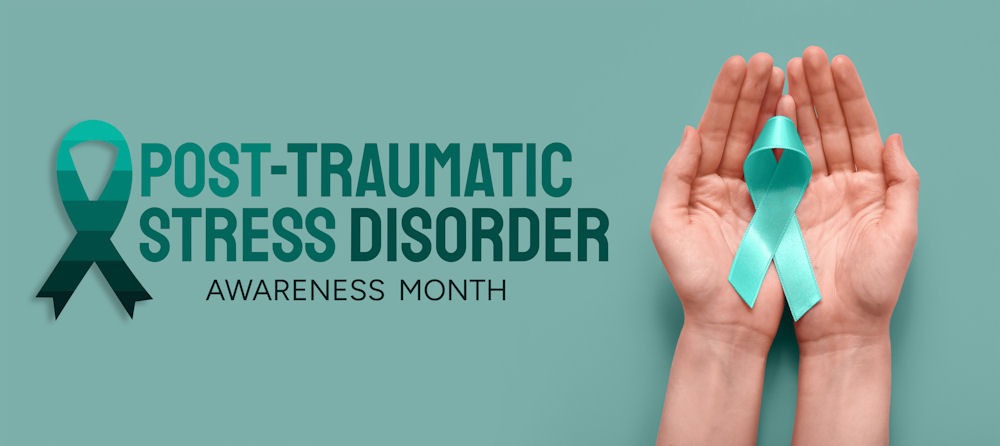June brings PTSD Awareness Month, a time dedicated to spotlighting the often invisible struggles of people living with post-traumatic stress disorder. While trauma affects millions, misconceptions and stigma can leave many feeling isolated. This month serves as a reminder to educate ourselves, offer support, and recognize the resilience of survivors. At Crestview Recovery in Portland, Oregon, we believe understanding PTSD is the first step toward healing.
For some, PTSD is a silent battle, shaping daily life in ways others might not see. PTSD Awareness Month encourages open conversations, helping break down barriers to treatment and fostering empathy. Whether through sharing stories, advocating for better resources, or seeking professional care, every effort counts. At Crestview Recovery, we provide specialized, trauma-informed treatment designed to help people rebuild strength and hope. This June, let’s amplify awareness and ensure those affected know how to find PTSD treatment in Portland, Oregon.
What Is PTSD?
Post-Traumatic Stress Disorder, or PTSD, is a mental health condition that can develop after someone lives through or witnesses a deeply distressing event. Traumatic events, such as combat, natural disasters, major accidents, or personal attacks, can lead to PTSD. PTSD Awareness Month serves as a reminder that this condition is real, complex, and more common than most people think. It can affect anyone, not just those in combat or emergency roles.
Who Can Be Affected By PTSD?

PTSD can affect anyone who has lived through something overwhelming or deeply distressing. It does not limit itself to one background, age, or profession. A child who experienced abuse, a teen who survived an accident, a doctor who witnessed loss every day, or a veteran returning from combat can all be affected.
PTSD Awareness Month brings attention to people often overlooked, like survivors of domestic violence, people recovering from medical trauma, and communities impacted by disaster or violence. Even those who support trauma survivors, such as caregivers or emergency workers, can experience lasting emotional effects.
What Do Recent Statistics Concerning PTSD Show?
- Statewide PTSD Prevalence. In Oregon, approximately 12.5% of individuals who died by suicide had a documented PTSD diagnosis, according to the Oregon National Violent Death Reporting System (NVDRS).
- PTSD Among Veterans. Veterans in Oregon, particularly those served by the VA Portland Health Care System, are at an elevated risk for PTSD due to combat-related trauma. The VA Portland Health Care System provides specialized services to veterans experiencing PTSD symptoms, emphasizing the need for targeted care for this population.
- Youth Trauma and PTSD. High rates of mental health diagnoses (57%), trauma history (95%), and substance use history (89%) among Oregon Youth Authority youth suggest widespread trauma and potential PTSD, requiring trauma-informed care.
What Are The Signs And Symptoms Of PTSD?
PTSD comes with all sorts of symptoms that can mess with your day-to-day life. It’s important to note that PTSD symptoms can vary between people, and PTSD symptoms may present differently in women and men.
- Unwanted, distressing memories of the traumatic event
- Flashbacks, reliving the trauma over and over again
- Upsetting dreams or nightmares related to the event
- Severe agitation or reacting physically when you remember the trauma you suffered
- Avoiding thoughts, feelings, or conversations about the traumatic event
- Shying away from locations, activities, or people that bring back memories of the traumatic event
- Negative thoughts about oneself or others
- Hopelessness about the future
- Erratic memory, such as not remembering important points of the traumatic event
- Difficulty maintaining close relationships
- Feeling detached from family and friends
- Lack of interest in activities once enjoyed
- Difficulty experiencing positive emotions
- Feeling emotionally numb
- Being easily startled or frightened
- Always being on guard for danger
- Self-destructive behavior, such as drinking too much or driving too fast
- Trouble sleeping
- Trouble concentrating
- Irritability, angry outbursts, or aggressive behavior
- Overwhelming guilt or shame
Gender Differences in PTSD Symptoms
Research indicates that PTSD symptoms can manifest differently between men and women. Women tend to show PTSD through flashbacks, feeling emotionally blank, and becoming hyper-alert. They also tend to seek social support more frequently, and the absence of such support can lead to more severe outcomes.
Conversely, men are more prone to exhibit externalizing behaviors like irritability, aggression, or substance misuse. Understanding these differences is essential for providing effective, tailored support during PTSD Awareness Month.
How Is PTSD Diagnosed And Treated?
Diagnosing PTSD begins with a thorough check-up by a mental health professional. This process often involves discussing past trauma, current symptoms, and how those symptoms affect everyday life. For a formal diagnosis, the symptoms must last more than a month and disrupt work, relationships, or daily functioning. PTSD Awareness Month helps shine a light on the importance of timely, accurate diagnosis so that people can get the help they need.
Treatment options vary depending on the person, but most approaches focus on helping people process the trauma and regain a sense of stability. Common methods include:
- Trauma-Focused Therapy. It may involve cognitive behavioral therapy (CBT) that focuses on reframing painful thoughts or prolonged exposure therapy that helps reduce the power of traumatic memories through safe, guided discussion.
- EMDR (Eye Movement Desensitization and Reprocessing). This technique uses guided eye movements to help the brain process distressing memories in a new way. It’s been shown to be especially effective for people struggling with vivid flashbacks.
- Medication. Some people benefit from medications that help reduce anxiety symptoms, depression, or sleeping difficulties. These are normally prescribed together with counseling.
- Support Systems and Group Therapy. Talking with others who understand what it’s like to live with PTSD can make a significant difference. Group therapy and peer support often provide a sense of connection and reduce feelings of isolation.
How Are Co-Occurring Disorders Addressed With PTSD?
People experiencing PTSD often face additional challenges, depressive disorders, substance use disorders, or chronic pain. Addressing these co-occurring disorders requires a comprehensive and integrated approach to ensure effective treatment and support. During PTSD Awareness Month, it’s crucial to recognize the importance of treating both PTSD and any co-occurring conditions simultaneously.
Integrated treatment coordinates care for PTSD and co-occurring disorders, such as substance use disorder (SUD), improving outcomes by addressing all mental health aspects. Various models deliver these comprehensive services, research showing better care quality and health outcomes for those with co-occurring disorders when treated holistically.
Therapeutic interventions, such as modified Cognitive Behavioral Therapy (CBT), are tailored to address the unique needs of individuals with PTSD and co-occurring disorders, ensuring effective and relevant treatment.
Comprehensive PTSD treatment involves a multidisciplinary team of healthcare providers, including psychologists, psychiatrists, social workers, and addiction specialists, who collaborate to create and implement a holistic treatment plan.
Patient progress is regularly monitored with assessments. Treatment plans are adjusted as needed to address changing individual needs and circumstances.
Support services like case management, peer groups, and family counseling are crucial for PTSD recovery and aid in managing co-occurring disorders alongside therapy.
What Can You Do To Support PTSD Awareness This Month?
June is PTSD Awareness Month, and whether you’re a community member, a healthcare provider, or someone who wants to make a difference, there are meaningful ways to contribute. Here are some impactful actions you can take:
- Share Educational Resources. Share resources on PTSD symptoms, treatments, and coping methods. The National Center for PTSD provides printable flyers, posters, and cards for distribution in various settings.
- Host or Attend an Awareness Event. Organize or participate in events such as walks, runs, or concerts aimed at raising awareness and funds for PTSD research and treatment. These events not only educate the public but also provide a platform for people to share their experiences and find support.
- Promote Open Conversations. Open discussions about PTSD lessen stigma and encourage help-seeking. Empathy and listening are impactful.
- Support Mental Health Organizations. Donate to or volunteer with organizations that provide help and services for people with PTSD.
- Advocate for Policy Change. Engage with local policymakers to advocate for better mental health services and support systems for those affected by PTSD. This could involve writing letters, attending town hall meetings, or participating in campaigns that promote mental health awareness.
- Practice Trauma-Informed Mindfulness. Engage in mindfulness practices that are sensitive to the needs of individuals with trauma histories. Techniques such as deep breathing, meditation, and grounding exercises can help manage stress and promote healing.
- Support Research and Education. Contribute to research efforts by supporting institutions that study PTSD and its treatments. This can involve donating to research funds, participating in studies, or spreading awareness about the importance of PTSD research.
- Create Safe Spaces for Sharing. PTSD support groups offer a safe space for sharing experiences, validating feelings, reducing isolation, and building community.
- Educate Yourself and Others. Take the time to learn about PTSD, its symptoms, and treatment options. Sharing this knowledge with others can help create a more informed and supportive community.
- Wear Teal or Display Teal Ribbons. Show your enthusiastic support by wearing teal, the official PTSD awareness color, or rocking teal ribbons. This simple act can spark conversations and raise awareness about PTSD.
Crestview Recovery offers PTSD treatment in Portland, Oregon

At Crestview Recovery in Portland, Oregon, healing from PTSD is approached with compassion and evidence-based care. June’s PTSD Awareness Month highlights the importance of understanding this condition and the effective treatments available. Our personalized programs in Portland provide a safe space for people to process trauma and develop resilience.
Through therapy, support, and education, Crestview Recovery empowers clients to reclaim their lives. If you or someone you know is struggling with any mental health issues, this month serves as a reminder that help is within reach. Contact us today to discover how our specialized PTSD treatment in Oregon can guide you toward lasting recovery.
https://www.research.va.gov/topics/ptsd.cfm
https://www.ncbi.nlm.nih.gov/books/NBK571013/
https://www.ncbi.nlm.nih.gov/books/NBK207192/
https://www.ncbi.nlm.nih.gov/books/NBK207191/
https://pmc.ncbi.nlm.nih.gov/articles/PMC5632782/
https://pmc.ncbi.nlm.nih.gov/articles/PMC2746089/
https://pmc.ncbi.nlm.nih.gov/articles/PMC9040390/
https://pmc.ncbi.nlm.nih.gov/articles/PMC7839656/
https://pmc.ncbi.nlm.nih.gov/articles/PMC6799972/
https://www.ptsd.va.gov/understand/common/common_adults.asp
https://library.samhsa.gov/sites/default/files/pep19-screen-codjs.pdf
https://www.ptsd.va.gov/professional/treat/cooccurring/tx_sud_va.asp
https://www.nimh.nih.gov/health/statistics/post-traumatic-stress-disorder-ptsd
https://www.samhsa.gov/mental-health/serious-mental-illness/co-occurring-disorders
https://www.oregon.gov/oha/HSD/AMH/Documents/Veterans%20Behavioral%20Health%20Services%20Improvement%20Study%20Report.pdf
https://www.flcourts.gov/content/download/216012/file/Floridas_Dependency_Benchbook_SubstanceUseMentalHealthandCo-OccurringDisorders.pdf
































